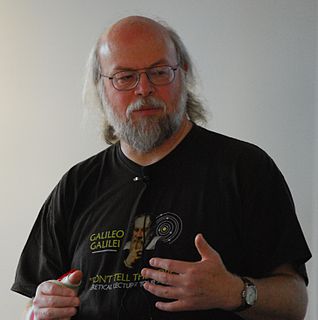A Quote by Linus Torvalds
I actually don't believe that everybody should necessarily try to learn to code. I think it's reasonably specialized, and nobody really expects most people to have to do it. It's not like knowing how to read and write and do basic math.
Related Quotes
When you learn to read and write, it opens up opportunities for you to learn so many other things. When you learn to read, you can then read to learn. And it's the same thing with coding. If you learn to code, you can code to learn. Now some of the things you can learn are sort of obvious. You learn more about how computers work.
The manual for WordStar, the most popular word-processing program, is 400 pages thick. To write a novel, you have to read a novel - one that reads like a mystery to most people. They're not going to learn slash q-z any more than they're going to learn Morse code. That is what Macintosh is all about.
Mindset changes are not happening from change in legislation. Like desegregation. We legally got rid of legal segregation, but schools are still segregated. You can demand people have better math understanding, but it depends how you interpret math understanding, and what you want it for, and if you think everybody can and should have that.
I know that a lot of songwriters write about a break up. It's a really popular topic. I think heartbreak is the number one thing people write about. I could say that's narcissistic somehow because they want everybody to admire how pained they are. But I actually do think there's something beautiful and uplifting about knowing that you're not the only one who is experiencing or has experienced that kind of devastating loss. Everyone's experienced that.
The math you need for most of finance is ninth-grade algebra, and most people feel reasonably comfortable with that. But I think the financial world there has been - I don't know if it's by design, or this is how it's evolved - there are bad actors who have wanted to obfuscate because you can benefit from the lack of transparency.
Even my colleagues don't read classic criticism. And my feeling is that if you don't do that then you're not really practicing your craft. That's how you learn how to do it. You don't learn how to write about jazz just from listening to jazz. You learn how to write by reading the great writers and how they worked, the great music critics.
I really loved working with Michael Caine. He's a really skilled and experienced actor. I learn something from everybody, but when you work with somebody like that, you actually learn things you can put in your toolbox, things about craft. Not necessarily life lessons, but actual things he knows that you can pick up.


































